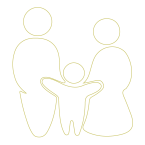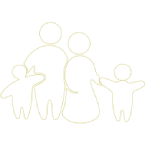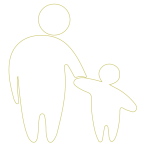The Challenges, Fears, and Emotions of Addiction from Both Sides
When a loved one starts their recovery journey it’s natural for friends and family to feel scared, nervous, and overwhelmed. Their lives can often feel like a rollercoaster of emotions. They’ve experienced so much heartache already they often become laser focused on expecting the next bad thing to happen or fear the past so much they struggle with how to reconnect with their loved one and how to welcome them back into their everyday lives. Something as simple as having a “normal conversation” with their loved one becomes overwhelming.
But, underneath your loved one’s addiction is the person you knew before their lives became unbearable due to their substance use disorder.
Working with these families and friends of individuals struggling with addiction at Center For Family Services’ ReConnections program over the last three years has been one of the most rewarding jobs I could ever dream of. Why? Because it feels good to help families learn how to persevere during a time in their life that feels very scary.
But, the greatest gift I’ve learned is that reconnecting with a loved one is possible. With the support of ReConnections, families and friends find themselves back at a place with their loved one where they enjoy doing most things they have missed dearly. These moments help not only the family member but also the individual in recovery remember happy memories, and take that along with them in helping themselves sustain recovery.
Through ReConnections, participants learn to find gratitude in the everyday and to communicate how they feel before they react to a loved one’s situation. They set up healthy boundaries that allow their relationships with their loved ones to continue on a positive path. When families learn how to have empathy as well, it gives them the opportunity to sit in someone else’s shoes. Reconnecting takes time, it takes learning new skills, and it takes patience. It’s not a one-way street; it requires the entire family, including the individual with the substance use disorder, to try to rebuild the relationship. But it’s worth it. Most importantly, ReConnections is always there to help make that process easier.
The remainder of this blog entry shares a look into addiction from two different perspectives. First, the perspective of someone with a substance use disorder and what they wish their family and friends knew about their experience. Second, the perspective of what family and friends wish their loved one know about their experience living with a loved one struggling with addiction. Empathy is imperative to the recovery journey, for both the person struggling with substance use disorder and their family and friends. The following perspectives provide a glimpse into each sides emotions, fears, and challenges.
The perspective of someone with a Substance Use Disorder
It isn’t your fault.
There isn’t anything “more” that you can do.
Your support is valued but underappreciated because we’re consumed by self-centeredness.
I don’t hate you.
I am so much harder on ourselves than you ever could be.
I’m sorry but I don’t know how to say it because we are so ashamed of our actions.
I hate stealing your peace, money, belongings and time but I can’t handle the withdrawal symptoms.
You having boundaries is the best thing you could ever do for my long-term recovery, even though I don’t see that at the time.
Your desire for me to get clean and sober is not enough to get us clean and sober. I have to be ready.
Just because I don’t want to use anymore isn’t enough of a reason for me to start my recovery.
I need to hit my bottom to fully surrender.
When I pick back up and relapse I are so disappointed in myself and scared of disappointing you again.
I just want to make you proud.
I love you, even when I’m actively using, I just don’t love myself.
Thank you for not giving up hope.
The perspective of family and friends with a loved one with Substance Use Disorder
How I knew firsthand, your family history of addiction and felt hopeless to intervene when you started using drugs/alcohol.
How I could not trust anything you said, who you were with, what you were doing, where you were going.
How I knew you were lying as the words came out of your mouth.
How much it hurt to not have the normal expectations and dreams for you.
How I turned into the extreme co-dependent parent, all the while hating that type of relationship, yet hoping you would appreciate my efforts.
How scared I was to get calls from the police.
How your anger projected onto me and how you would deflect anything I confronted you with, turning every encounter into a screaming match.
How I never wanted to go to support meetings for fear of seeing parents who lost their children, but yet it was the only place that people understood my walk with you.



